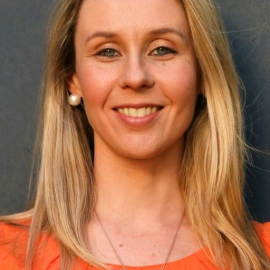This project involved a number of components aimed at determining the capacity of the NSW mental health workforce in the area of intellectual disability mental health, and to define the core attributes that they require to deliver a quality mental health service that meets the needs of people with an intellectual disability and co-occurring mental ill health.
The key components of this project included
-
A survey of the NSW public mental health workforce.
-
A Delphi study with clinical experts.
-
Focus groups with the family members and support networks of people with an intellectual disability and co-occurring mental ill health.
-
Interviews with people with an intellectual disability and mental ill health.
-
Advocating for the inclusion of the attributes required to meet the needs of people with an intellectual disability within generalist competency frameworks
Two of the key outputs of this project were the Intellectual Disability Mental Health Core Competencies Framework: A Manual for Mental Health Professionals and accompanying Toolkit. The Framework describes the specific skills and attributes required by mental health professionals. It outlines the necessary approaches to clinical practice when working with people with an intellectual disability, identifies the Core Competencies workers require, and guides readers to resources that support professional development in intellectual disability mental health. The Toolkit is a practical guide for mental health professionals to assist them with achieving the attributes described within the Framework.
Publications from this project
- Weise, J., Fisher, K. R., Turner, B., & Trollor, J. N. (2019). What is the capability of the Australian mental health workforce to meet the needs of people with an intellectual disability and co-occurring mental ill health?. Journal of Intellectual & Developmental Disability, 1-10
- Reppermund, S.; Weise, J.; Cvejic, R.; and Trollor, J. (2019). How Can We Provide Better Healthcare for People With An Intellectual Disability? Frontiers for Young Minds
- Weise, J., Fisher, K. R., & Trollor, J. N. (2018). What makes generalist mental health professionals effective when working with people with an intellectual disability? A family member and support person perspective. Journal of Applied Research in Intellectual Disabilities, 31(3), 413-422. doi: 10.1111/jar.12420
- Weise, J., Fisher, K. R., Whittle, E., & Trollor, J. N. (2018). What Can the Experiences of People With an Intellectual Disability Tell Us About the Desirable Attributes of a Mental Health Professional? Journal of Mental Health Research in Intellectual Disabilities, 1-20. doi:10.1080/19315864.2018.1469700
- Weise, J., & Trollor, J. N. (2017). Preparedness and training needs of an Australian public mental health workforce in intellectual disability mental health. Journal of Intellectual & Developmental Disability, 1-10. doi:10.3109/13668250.2017.1310825
- Weise, J., Fisher, K. R., & Trollor, J. N. (2017). Establishing core mental health workforce attributes for the effective mental health care of people with an intellectual disability and co‐occurring mental ill health. Journal of Applied Research in Intellectual Disabilities, 30(S1), 22-33. doi:doi:10.1111/jar.12407
- Weise, J., Fisher, K. R., & Trollor, J. (2016). Utility of a Modified Online Delphi Method to Define Workforce Competencies: Lessons from the Intellectual Disability Mental Health Core Competencies Project. Journal of Policy and Practice in Intellectual Disabilities, 13(1), 15-22.
- Trollor JN; Eagleson C; Weise J; McKay R, 2017, 'Development and dissemination of a core competency framework', Journal of Mental Health Training, Education and Practice, vol. 12, pp. 237 - 248, doi:10.1108/JMHTEP-04-2017-0028
Related links
Huffington Post story: http://m.huffpost.com/au/entry/9570154
Attachment
Preliminary report on the Implementation of the IDMHCC Framework.pdf

